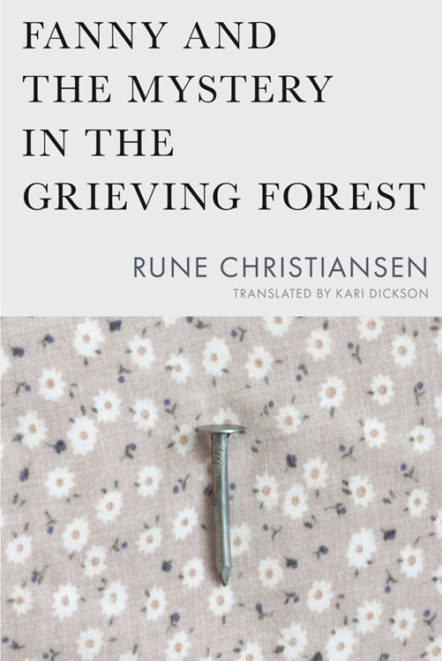
Alm had some things he needed to do in town early, so Fanny could get a lift if she liked. As he drove, he drank coffee from a paper cup. It looked as though he was holding it in his hand to feel the warmth. His eyes were still slightly glazed from sleep, but he spoke tirelessly, all the same, about how the small and unremarkable events were what kept the world moving. Everything was connected, he believed, everything was indebted to everything else. Fanny thought it was a rather shallow view, but said nothing. She also thought that if that was the case, it would hardly be positive; to the contrary, it would fuel tyranny and dependence, a kind of ranking of fate. She imagined a group of workers installing a transmission tower not far from the highway, and a year or two after the transmission tower had been erected, for some inexplicable reason, perhaps due to a momentary loss of concentration, a car drove off the road straight into the towering steel construction. The two people in the car, a man and a woman, were taken to the nearest hospital. A doctor was working overtime in Emergency. He was missing his son’s first school show. The son hadn’t spoken to his father for a week. The man and the woman in the car lost their lives. Their seventeen-year-old daughter became obsessed with death. Anyone could see she was obsessed, she was certain of that, because surely it was impossible not to notice her miserable face. While Alm talked, Fanny composed a small and sorry but nonetheless clearly logical sequence: she was born + a transmission tower was raised = she lost everything. And what was the point of that? What good were the coins on the deceased’s eyes and the bandage to tie up the chin? What kind of superstition was that? Was it to ensure that the dead stayed dead? Was it the desire to make sure that never again would they be able to see or speak? Was there a fear that death might leak into life? And Fanny herself, was she scared of dying? No, Fanny wasn’t scared of dying. She was scared of not dying. Of being prevented from disappearing, fleeing, dissolving one day—that frightened her. Being abandoned again, left behind, only to wander around like a spirit in her own empty life, that was most terrifying of all.
Fanny leaned her head against the cold window. It was still dark outside. And it was raining, but raining without a sound. The water forced its way silently down the glass in irregular streams. She felt like an astronaut staring out into space, out into the dark mass that surrounds everything, only a glimpse of light now and then, soft sodium lighting, all distant pools and flares. She was sitting in a spaceship gliding over the surface of an unknown planet. All at once it was as if nothing weighed her down. Everything in and around her had life, as trees have life, as horses and frogs and flies do. She was dreaming. She was happy. A cascade of tumultuous time brought fragile and transparent pictures to the surface. Pockets of crystal clear, azure blue depths over the hills, the speckled darkness of the woods and forests. She closed her eyes. Alm’s monologue had faded. Where did he come from? Did he have children? It was as if he carried with him the shame of a previous generation. Had he broken with everything in his former life? Former life—what did that mean?
A rabbit zigzagged across the beam of the headlights. Its graceful and terrified bounds threw long, erratic shadows over the road. Then the little beast finally jumped from the road into a ditch and out of sight.
Fanny and the Mystery in the Grieving Forest by Rune Christiansen, translated by Kari Dickson, is available from Book*hug Press now